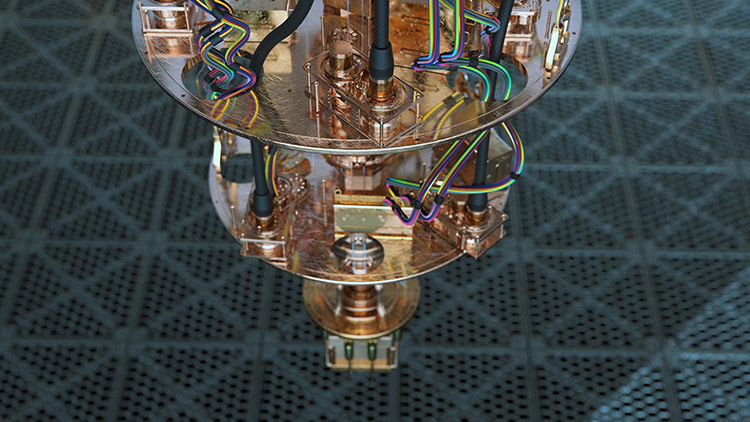
Component of a superconducting quantum computer. [Image: Getty Images]
In a recent panel discussion, five experts discussed the evolving business and research environment for quantum technology in Europe—and what it will take to foster that ecosystem’s continued development.
The wide-ranging discussion stressed the need to nurture collaborative arrangements across borders and the free exchange of knowledge—as well as the threat to that exchange from an emerging “quantum nationalism.” It also touched on topics such as funding ecosystem development, the need for a “deal flow” of quantum investment opportunities, and how potential end users are viewing quantum opportunities right now. The panel was part of a larger hybrid in-person/virtual event organized by the University of Bristol, UK, and co-sponsored by Optica (formerly OSA).
The panelists included:
- Optica Fellow and 2004 OSA President Sir Peter Knight, the chair of the strategic advisory board for the UK National Quantum Technologies Program;
- Tommaso Calarco, a University of Cologne, Germany, physicist and a leader in the creation of the European Commission’s ten-year Quantum Flagship funding initiative;
- Freeke Heijman, founding director of two ecosystem-development initiatives in The Netherlands, Quantum Delft and Quantum Delta NL;
- Christophe Jurczak, a physicist who in 2018 started the Paris-based, quantum-focused investment fund Quantonation.
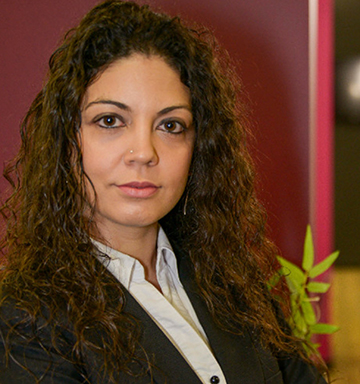
Araceli Venegas-Gómez, founder of QURECA, moderated the panel discussion
Moderating the discussion was Araceli Venegas-Gómez, the founder of QURECA, a Glasgow, UK, company offering training, recruitment and business services tied to quantum technology.
UK: Tilting toward industry, computing
In bringing so diverse a suite of quantum stakeholders together, the discussion inevitably highlighted the patchwork of different national and regional quantum programs currently afoot in Europe.
Knight, for example, talked about the evolution of the UK program—now in its second five-year phase, which began in 2019—to increasingly highlight “connectivity” with industry. The first phase of the program, he explained, largely focused on building links between research universities, and on the creation of a network of four quantum research hubs in the areas of computing and simulation, imaging, sensing and timing, and communication.
“At the very beginning, we had a degree of engagement with industry that was relatively modest,” Knight said. But the second phase of the program sharpened the focus on industry, with the creation of a “challenge fund” to identify pre-competitive areas where industry, academia and government labs could work together.
The second phase, he added, has also seen an increasing emphasis on quantum computing in particular, including the recently begun construction of a new National Quantum Computing Center facility. “Quantum computing is likely to grow in the next phase in the UK,” according to Knight.
“World-leading” quantum efforts in Europe
Calarco, speaking from the perspective of the European Union, highlighted some areas in which Europe is particularly strong, including quantum simulation with neutral atoms, as well as sensing technologies, particularly those built on diamond color-center platforms—areas where he characterized Europe as “world leading.”
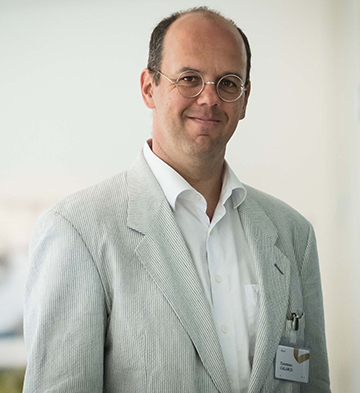
Tommaso Calarco, a key figure in the launch of the EC Quantum Flagship program.
Calarco also noted that while Europe might seem to be behind the United States in areas like quantum computing on superconducting-circuit platforms—where companies like Google and IBM have garnered headlines—Europe is much better positioned with respect to platforms built on qubits made of trapped ions and neutral atoms. And, he pointed out, one of the market leaders in quantum communication and cryptography, ID Quantique, is at least geographically in Europe (in Switzerland, which is not a member of the European Union).
Jurczak highlighted the national quantum program of one European Union member state, France, where President Emmanuel Macron, at the beginning of this year, announced a €1.8 billion program to advance the country’s quantum technology effort. “I think the idea is really to orchestrate and have a clear strategy and priorities … on some technologies were France is strong, like neutral atoms, superconducting qubits and photonics,” Jurczak said. “And I think it’s good to have some direction of this kind.”
Indeed, Heijman observed that those kinds of choices confront any country seeking to carve out a place on the quantum scene. “When you think about writing a national agenda, topics come up like, What is the scope of the agenda? Are quantum sensors in or out? Is it only quantum computing? Or is it everything? And is this photonics thing in it or not?,” she said. In the case of The Netherlands, she noted, the priorities of the national program have ended up aligning closely with that of the larger European program embodied in the Quantum Flagship.
The collaboration imperative: Regional …
Even as they outlined some of the distinctive aspects of various national and regional initiatives, the panel members were at pains to stress the importance of international collaboration. A not-so-hidden subtext was the need to maintain close scientific ties between EU countries and the UK in light of the recent tensions surrounding Brexit.
Calarco reported in particular the “good news” that after a considerable lobbying effort by the Quantum Community Network (QCN)—a working group of leaders in the quantum space that he chairs—it appears that the UK (along with other associated countries including Israel) will be able to participate after all in projects funded through the EU Quantum Flagship program. Such participation had been called into doubt by the EC earlier in the year, but it those issues seem to have been overcome.
Calarco sees such ties as contributing to a broader effort to advance quantum technology within Europe as a whole. In that effort, he envisions a role not only for the programs of large EU member states such as France, Germany and Italy and for associated countries, such as the UK, with leading quantum programs, but also for smaller member and associated states being targeted for additional EU support—the so-called widening countries.
Calarco referred to the substantial budgets that some of these smaller countries, such as Hungary, are putting into quantum development as “the next wave,” and noted that they are contributing not only national funding but start-up companies as well. “We see these developing into a truly pan-European initiative,” he said.
… And bilateral
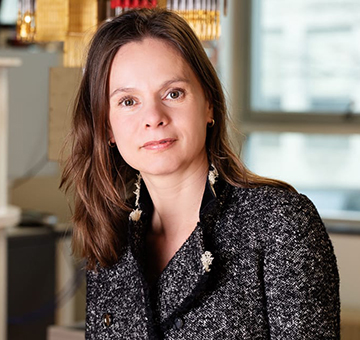
Freeke Heijman, the founding director of the Quantum Delft and Quantum Delta NL ecosystem-focused projects in The Netherlands.
Jurczak and Heijman, meanwhile, both emphasized the importance of smaller, bilateral and other collaborative arrangements among individual countries or groups. Jurczak pointed out that these arrangements don’t necessarily need to be “a contradiction” with larger, pan-European efforts such as the Quantum Flagship, but can complement them.
“Initiatives in ecosystems that are coming from the ground [up] are really very powerful,” he said. He cited, for example, several joint programs between The Netherlands and France, such as “La Maison du Quantique” (the House of Quantum)—which Heijman, on the Netherlands side, referred to as “a physical place where the ecosystem can come together.” Another concrete example, she added, has been a job board listing “all the jobs that are quantum jobs in France and The Netherlands.”
These efforts, Jurczak and Heijman suggested, are valuable for building bridges and relationships among countries. “In the end,” Heijman observed, “the European funding is only part of the whole funding that flows into these ecosystems.”
The threat of “quantum nationalism”
Yet the panel also underscored that such collaborative efforts face the threat of what Knight called “quantum nationalism”—the possibility that, as the governments of individual countries become more interested in gaining a competitive edge in quantum technology, they may impose trade restrictions and other measures that make such collaboration harder.
“Premature quantum nationalism will hurt us all,” Knight said. He noted that most of the technologies are still at early stages, with standards still being developed and requiring cross-border agreement. “Standards done wrong was strangle this emergent technology,” he maintained. “And the only way you can get appropriate agreement on standards is to have proper international engagement.”
“What we want to do is work with the best,” Knight said, arguing that this is the best way to generate impact for the technologies. Heijman concurred: “This community has always worked together … It would be devastating if nations would build walls around their own countries.”
Money matters
Another recurring theme in the discussion, of course, was how this technology revolution will be funded.
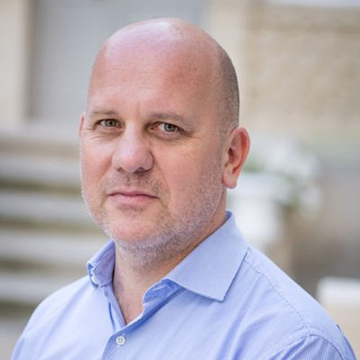
Christophe Jurczak is founder and managing partner of the Paris-based investment fund Quantonation.
Jurczak, whose investment fund has taken stakes in 15 quantum-focused enterprises, noted that the perception that Europe is somehow “behind” in quantum financing may relate to the lack of marquee deals comparable to those of U.S.-based quantum players such as IonQ and Rigetti Computing. In recent months, both firms have announced their intention to go public through the vehicle of so-called special-purpose acquisition companies, nicknamed SPACs or “blank-check” companies.
“We’re hearing about hundreds of millions [of U.S. dollars] going into these companies,” Jurczak said. “But that doesn’t mean that the companies in France are so far behind that there will not be able to raise this kind of money,” suggesting that companies there and in other European areas could be “looking for major funding and in the hundreds of millions over the next two years.”
A key question that Jurczak and others raised, however, is whether Europe will be ready to fund those companies when the time comes. Jurczak worries in particular about the lack of “deal flow”—high-quality projects emerging from European universities that constitute attractive long-term investment targets.
And the investment horizon truly does need to be long term. Knight noted that while “the investment appetite is certainly there and growing” in the UK, some young quantum startups “probably need a little breathing space to be able to demonstrate what they’re able to do before they get absorbed into something much bigger.” As a result, he said, some investors “need to be able to demonstrate a bit more patience in some of these things, and be a little bit a little less risk averse.”
Building an entrepreneurial spirit
Getting to a strong deal flow, some of the panelists suggested, will hinge in part on building a culture of entrepreneurship in areas that may be a bit resistant to the idea. “The entrepreneurial spirit in this field, I think, can improve,” said Heijman, adding that one program in the €615 million ecosystem-building effort of Quantum Delta NL funds “scouts” that visit labs, engage with researchers and work on “new ideas to get the deal flow going.” And she said she’s seeing an acceleration of such deals—in The Netherlands, at least.
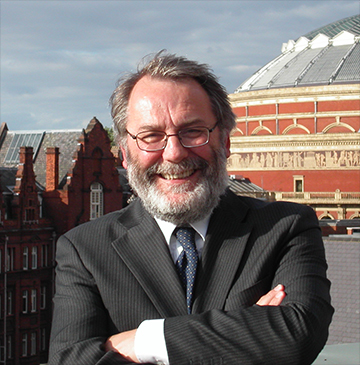
Sir Peter Knight chairs the strategic advisory board of the UK’s national quantum effort.
From the UK perspective, Knight said there was a need to “address entrepreneurship at both ends.” Part of that involves getting funding and resources to promising startups, which the UK is addressing through vehicles such as the challenge funds and work with the state-funded British Business Bank. But “right at the other end of the flow, we need to do a lot more in terms of entrepreneurship training with the people that are working in the research labs.”
Reaching end users
Of course, all of the deal flow in the world will prove meaningful only if end users decide they really need quantum technology. And, the panelists stressed, different potential end users tend to look at quantum in different ways. Some end users “are really only interested in bringing in a piece of technology as an enabler for their other things,” said Knight. “And that journey takes time,” he added—on the order of five years or more—particularly for large companies.
High-value manufacturing companies in particular, Knight believes, are keeping a “watching brief” on quantum and only gradually starting to adopt quantum technology. “They don’t want to know it’s ‘quantum enabled’; they want to know, “Does it do something I need to be done?” Yet companies in other areas, such as telecommunications, are “jumping in quite quickly,” as they are “acutely aware that technology will disrupt their businesses.”
Heijman also emphasized that it “takes a lot of time for industry end users to get used to the technology and also to learn about what you can do with it.” As a result, she suggested, “it’s important that these end users embark on the journey now, although … real commercial implementation in their markets could be years away.”
Calarco noted that one EU project midwifed by the Quantum Community Network—the Quantum Industry Consortium (QuIC)—was designed specifically “with the purpose of bringing together makers and users technologies.”
Once again, he stressed that QuIC was about building a “pan-European” ecosystem, with participation not only by EU member states but by associated states such as the UK, Switzerland and Israel. And, he added, QuIC is “entirely and purely driven by the private sector”—in contrast to a similar consortium in the United States that includes academic and government involvement.
Not too early—and not too late
While the discussion covered considerable ground, perhaps its main message was simple: There is a lot going on in European quantum right now, both in basic science and in the development of an industry ecosystem. Jurczak, the quantum-technology investor, struck that note in the session’s closing words.
“It’s not too early anymore, and it’s not too late yet to build great companies,” said Jurczak. “It’s a time to get in where the action is.”
